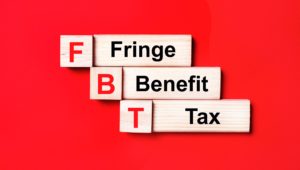 Employers can deduct the amount paid to their employees for services they perform. The pay may be in cash, property, or services. It may include wages, salaries, bonuses, commissions, or other noncash compensation such as vacation allowances and fringe benefits.
Employers can deduct the amount paid to their employees for services they perform. The pay may be in cash, property, or services. It may include wages, salaries, bonuses, commissions, or other noncash compensation such as vacation allowances and fringe benefits.
A fringe benefit is a form of pay for the performance of services beyond an employees’ normal rate of pay and can be property, services, cash or cash equivalents such as savings bonds. It can also be intangible, as in the use of a company car or life insurance.
You may deduct fringe benefit expenses if the goods, services, or facilities are treated as compensation to the recipient and reported on Form W-2 for an employee or Form 1099-NEC for an independent contractor. Special rules apply if the recipient is an officer, director, or beneficial owner, directly or indirectly, or other specified individual. For more information about special rules employers may use to value certain fringe benefits, see IRS Publication 15-B, Employers’ Tax Guide to Fringe Benefits. It contains information for employers on the employment tax treatment of fringe benefits.
Specific Fringe Benefits
You are the provider of a fringe benefit if it is provided for services performed for you. You are considered the provider of a fringe benefit even if a third party, such as your client or customer, provides the benefit to your employee for services the employee performs for you.
Meals and lodging can be deducted 50% of certain meal expenses and 100% of certain lodging expenses provided to your employees. If the amounts are deductible, deduct the cost in whatever category the expense falls.
Deduct the full cost of the following meals:
- Meals you furnish employees as part of providing recreational or social activities.
- Meals you furnish employees at a work site where you operate a restaurant or catering service.
However, with food and beverage expenses incurred with entertainment expenses, no business deduction is allowed for any item considered to be entertainment, amusement, or recreation. If food and beverages are provided during an entertainment activity, the food should be separate from the entertainment costs, and then 50% of the bill deducted. The Taxpayer Certainty and Disaster Tax Relief Act of 2020 provides for a temporary 100% deduction until January 1, 2023.
- Transportation commuting benefits — Providing transportation via a commuter highway vehicle, transit passes or qualified parking are no longer deductible. No deduction is allowed for any expense incurred for transportation, reimbursement or in connection with travel to get to work, except when it means the safety of your employee or for qualified bicycle commuting reimbursement.
- Employee benefit programs — For accident and health plans, adoption assistance, cafeteria plans, assistance for dependent care or education, life insurance coverage, and welfare benefit funds, amounts you spend in whatever categories they fall can be deducted. However, you cannot deduct life insurance for any person with a financial interest in your business if they are directly or indirectly the beneficiary of the policy. For welfare benefit funds, the deduction for contributions is limited to the fund’s qualified cost for the tax year. If your contributions are more than its qualified cost, carry the excess over to the next tax year.
There are many exceptions and provisions. Since laws and regulations are complicated and frequently change, be sure to seek professional advice to ensure your benefits are reported and taxed properly.